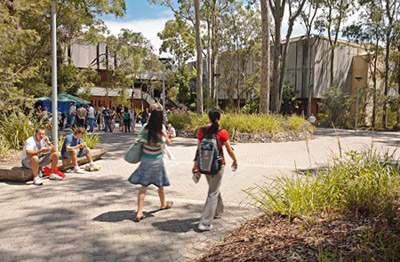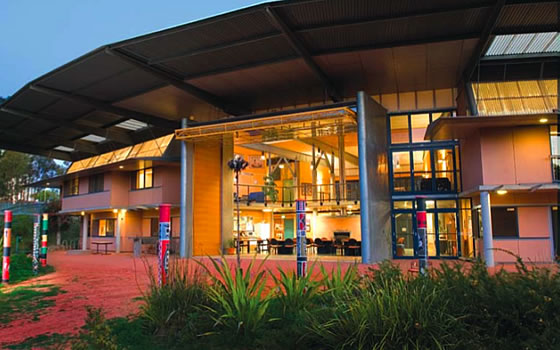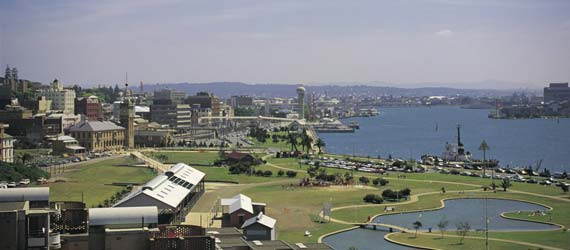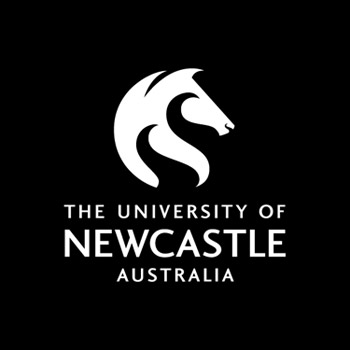The University of Newcastle, Australia – Out to Achieve
Last Updated on Tuesday, 23 March 2010 00:05
The University of Newcastle is a progressive, dynamic institution recognised for research achievement, teaching innovation and access to higher education for disadvantaged groups. Our reputation as a higher education institution of distinction is built on the achievements of many members of the University’s community.

The University’s Australian campuses are located at Callaghan – 12 kilometres from the Newcastle City Centre; in a city precinct in the Newcastle CBD; on the Central Coast halfway between Sydney and Newcastle; at Port Macquarie on the New South Wales Mid-North Coast, three hours drive north of Newcastle, as well as offering ELICOS and Postgraduate Finance and Business programs through the newly established presence in the Sydney CBD. The University also has a campus in Singapore.
Rankings
• 9th in Australia for publicly funded research
• Top 400 in the world (375th) and 61st university in the Asia-Pacific Shanghai Jiao Tong University Academic Ranking 2008
• One of the world’s top 100 universities for engineering/technology and computer sciences Shanghai Jiao Tong University rankings by field 2007
Recent highlights include:
 • a strongly positive report from the Australian Universities Quality Agency that recognised the University as a vibrant and well-managed institution with enthusiastic students and staff
• a strongly positive report from the Australian Universities Quality Agency that recognised the University as a vibrant and well-managed institution with enthusiastic students and staff
• growing demand to study at the University with a record enrolment in 2008 of 30,340 students
• recognition for our academic staff with seven Citations for Outstanding Contributions to Student Learning from the Australian Learning and Teaching Council, three Quality Teaching Awards from the State of New South Wales, eight externally funded research fellowships and the appointment of an additional Laureate Professor
• continued research funding success with almost $25 million in new project funding from the Australian Research Council and National Health and Medical Research Council
• expanded work-based learning opportunities for our students, including sending 40 Bachelor of Communication students for work experience at the 2008 Beijing Olympics and Paralympics. Only ten universities worldwide were invited to send students to work as ‘Flash Reporters’ to the 2008 games
• national success for our Chamber Choir as winners of Channel 7’s Battle of the Choirs
• greater collaboration and engagement with our communities through a wide range of public lectures, conferences and community-based projects particularly relating to Indigenous and environmental issues
• establishment of the University Committee on Environmental Sustainability and confirmation of the University as a leader in the Australian higher education sector in sustainable development.
• In 2008, the University was privileged to be granted approval to establish a Confucius Institute in partnership with Huazhong Normal University. It is the last Institute to be approved and the only one in a regional location in Australia. The bid received the full support of the Australian Prime Minister, Kevin Rudd. The Confucius Institute will increase Newcastle’s knowledge and understanding of China – its history, culture and language. It will also strengthen the University’s relationship with China around practical teaching, research and intercultural issues.
• establishment of a presence in Sydney in 2009, with the opening of the University of Newcastle in Sydney, offering postgraduate programs in the areas of Finance and Business, as well as ELICOS programs

Over our history of more than 40 years, the University of Newcastle has been characterised as a university of distinction. Our reputation is shaped by internationally recognised strength in research and an enduring commitment to quality teaching and learning, environmental sustainability, and equity and diversity.
A determined campaign by Hunter residents was the driving force behind the creation of the University. In the early 1950s, Newcastle University College was established on a technical college site at Tighes Hill under the authority of the then University of Technology New South Wales (now the University of New South Wales). Just five full-time students were enrolled when classes began and study concentrated on science, mathematics and engineering.
Over the next 10 years, the growth in student numbers and the community’s desire for a university to call its own led to the University becoming an autonomous institution.

Today some 30,000 students are enrolled in programs across five faculties. Over 85 undergraduate programs are on offer and the range of postgraduate study options is continually growing.
The University has matured from a locally-focused institution to one that is global in its outlook. Our graduates are sought-after by employers at home and overseas. Working with communities locally and internationally, the University strives to achieve – creating opportunities, delivering results and raising the bar across every field.
A recent audit by the Australian Universities Quality Agency found the University to be a vibrant and well-managed institution. The University’s energy management is in the top tier in the sector and we are one of the lowest consumers of energy of all Australian universities.
Through the commitment of our staff, students, local communities and industry partners, the University is well positioned for further growth and success.

For more information about the University of Newcastle visit www.international.newcastle.edu.au














